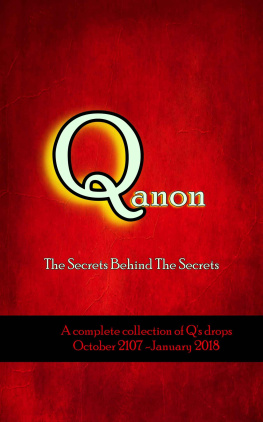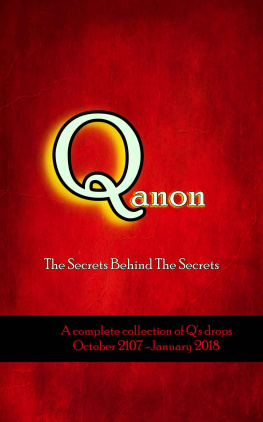This edition is published by PICKLE PARTNERS PUBLISHING www.picklepartnerspublishing.com
To join our mailing list for new titles or for issues with our books contact@picklepartnerspublishing.com
Text originally published in 1835 under the same title.
Pickle Partners Publishing 2013, all rights reserved. No part of this publication may be reproduced, stored in a retrieval system or transmitted by any means, electrical, mechanical or otherwise without the written permission of the copyright holder.
Publishers Note
Although in most cases we have retained the Authors original spelling and grammar to authentically reproduce the work of the Author and the original intent of such material, some additional notes and clarifications have been added for the modern readers benefit.
We have also made every effort to include all maps and illustrations of the original edition the limitations of formatting do not allow of including larger maps, we will upload as many of these maps as possible.
MEMOIRS
OF
A SERGEANT
LATE IN THE
FORTY-THIRD LIGHT INFANTRY
REGIMENT,
PREVIOUSLY TO AND DURING
THE PENINSULAR WAR;
INCLUDING
AN ACCOUNT OF HIS CONVERSION
FROM
POPERY TO THE PROTESTANT RELIGION.
Contents
MEMOIRS.
CHAPTER I.
NOTICE respecting the place of the author's birth, and familyCondition of Ireland at that periodThe rebellion, which soon followed, traced to its causes, Papacy and democracyAction at Rathangan, and the increasing insolence of the rebelsMichael Murphy, the celebrated fighting PriestBarbarous murder of John TinklerThe pretended miracle-workerPriest RocheDesperate action at Arklow, and defeat of the rebelsThe author induced to make choice of a military lifeEnters the army before he had completed his seventeenth yearApprehensions of invasion from the French, and the vigilance observed on the Kentish coast in consequence.Enters on actual service by proceeding with the expedition to Copenhagen, in 1807. The propriety of that measure examinedConsiderations relative to the Royal Military Asylum, Chelsea; and the moral effects of that Institution in the British army
I HAVE the advantage of being an Irishman. My parents had also the felicity of first seeing the light of day as it shone upon the soil of the land which for ages has seemed to possess such passing interest in the eyes of Britain. Their family consisted of six children: four boys, and two girls. I was the youngest of the whole, and, for reasons I do not profess to comprehend, was a special favourite. I was named Thomas; which, interpreted by parental love, was converted into Benjamin, with a double portion of all that substance so scanty as theirs could supply. I was born in the small townsland of Enneham, King's County, in the province of Leinster, about the year 1790, be the same a little earlier or later. The exact period I cannot specify; as at that time and place, and in consequence of the culpable negligence generally prevalent in parochial registration, very little thought or care was shown in recording such events. Those were the days of intestine broil and vengeance. The seeds of rebellion, which had been sown with an unsparing and remorseless hand, were just ready to produce their baneful first-fruit. Such was the jeopardy in which Protestants especially were placed, that no one who beheld the morning sun arise, could safely calculate upon seeing it go down. Domestic fury, and fierce civil strife, kindled and mainly maintained by Papal cupidity and violence, raged through the fairest portions of the country. No one had courage to trust his neighbours; for no one could tell who was worthy of trust. Mutual confidence, based upon moral principle, which alone can cement society, was blotted from the list of social virtues. Not many dared depend even upon former friends. The ties of relationship, and those arising from nearness of kin, were frequently forgotten. Natural affection, usually invincible, was unheeded; and under cover of night, or even in open day, the unwary traveller became frequently a prey to instantaneous death from the bullet of some skulking assassin, concealed behind the road-side bush or brake.
My parents, I regret to state, were Roman Catholics. They knew no better, for no other teaching had reached their minds. Their membership with that fallen community was their misfortune rather than their fault. I believe the profession they made was sincere; and that though mingled with the dross of Popish superstition, they were possessors of at least some few grains of sterling piety. My mother, in particular, was remarkably constant and fervid in her devotions; and the earnest manner in which her beads were counted, though I could never detect the meritorious points of calculation, is to be numbered among the earliest and most powerful impressions I ever received. My father had for several years acted as steward to Archibald Nevens, Esq., a gentleman, who, at that time, was the owner of considerable estates in the vicinity of Portarlington. Ours was a happy family. My father, though a plain man, was excelled by few in attachment to his wife and children. Hope springs eternal in the human breast; and we flattered ourselves that futurity offered to our notice lengthened years of comfort. But we soon found that our hold on earthly happiness was fragile as the spider's thread. My father was taken ill and died. Even now the procession of his funeral is pictured on my memory. The gentleman already named as my father's employer had fallen upon evil days. His property passed into other hands; and as the purchaser knew nothing of our family, no one cared for the widow and her orphan charge. A house with every needful convenience had been built for us by the original proprietor. This we were abruptly ordered to quit. Another king had arisen, who knew not Joseph or his father's house. We went away, weeping at every step. I saw my mother's tears, and to this day her low wailing strikes my ear. But though destitute, we were not forsaken; though in straits, we did not perish; and by the blessing of Almighty Providence upon the well-directed industry of my mother and my elder brothers, we were sustained with food convenient.
The desolate condition of the moneyless and unprotected widow was aggravated in no common degree by the political commotion already adverted to. Persons unacquainted with the approaching terrors of that era may imagine that an obscure and uninfluential family, like ours, had little to apprehend, that our poverty was protection enough; and that those who had nothing to lose had nothing to fear. Not so. The conflict then impending arose from the dark designs of men cursed with a heart unknowing how to yield, and who were bent on havoc and rapine. Personal robbery might not be planned, but many were ready for that and a great deal more. Heresy and sedition were closely in league; the emissaries of each were in ceaseless motion; and the ultimate lesign was, to burst forth from the unsuspected places of mischief, suddenly, and wide wasting as the simoom of the desert, and sweep with indiscriminating ire, from the abodes of their peaceful countrymen, every vestige of existing government, and every temple devoted to the Reformed religion, as by law and right reason established. Perfect secrecy on the part of the rebels was happily unattainable. Every now and then circumstances and facts transpired, the tendency of which could not be mistaken. Hair-brained but hot-headed men became the self-elected orators of secluded nocturnal assemblies. Liberty and equality, and reason versus religion, neat as imported from the French Directory at Paris, was the order of the day. Uprorious vociferation took the place of argument; and though the majority of these Hibernian gentry were as ignorant of jurisprudence as the more modern destructionist, nothing less than the dismemberment of the British empire, and the establishment of a republic, formed probably on the model of citizen Robespierre, would suit their purpose. All this was designed, and most of it was divulged. Experience has shown, that where numerous and unequally gifted agencies are employed, let the pursuit be good or evil, entire privacy is next to impossible. The parties may promise to be silent, or may bind themselves to be so by oath; but concealed knowledge is a treasure, of which the custody is to some communicative souls impracticable. They find themselves in the possession of a secret; it struggles to break away, but they remember their vow, and in order to hold it fast, they get a friend or two to help them. The sons of Irish misrule assumed several names: there were white-boys, and steel-boys; oak-boys, and right-boys. Distinctions are, however, needless,they were all bad boys; and at length the entire series were drawn into the wild and powerful vortex of United Irishmen; it being understood that this body consisted chiefly of persons professing the Roman Catholic religion.












